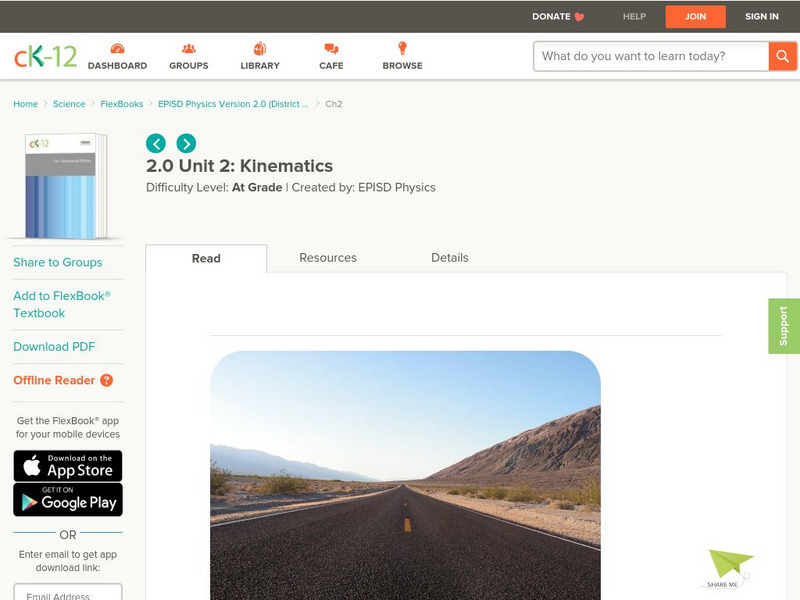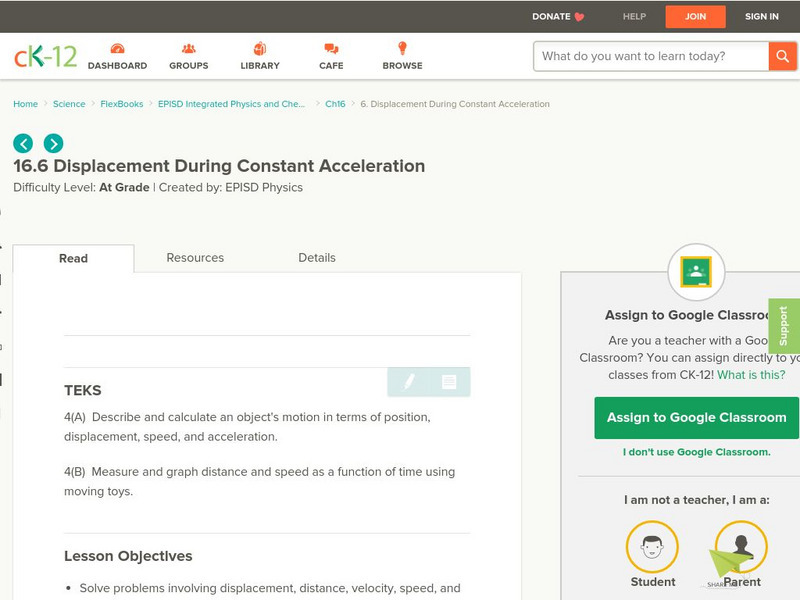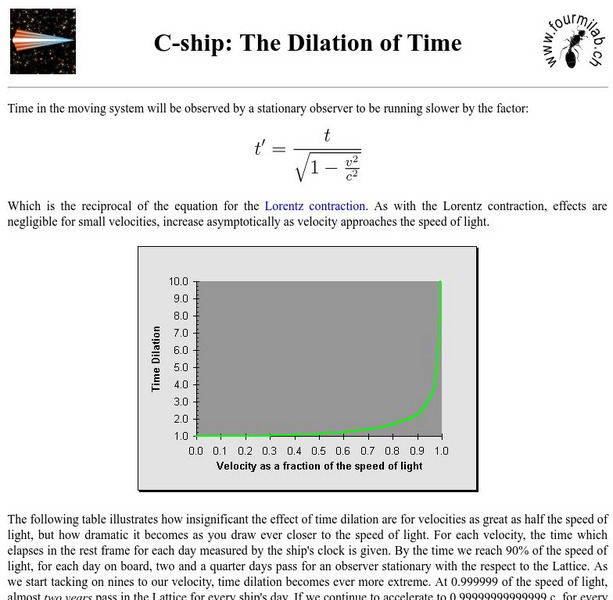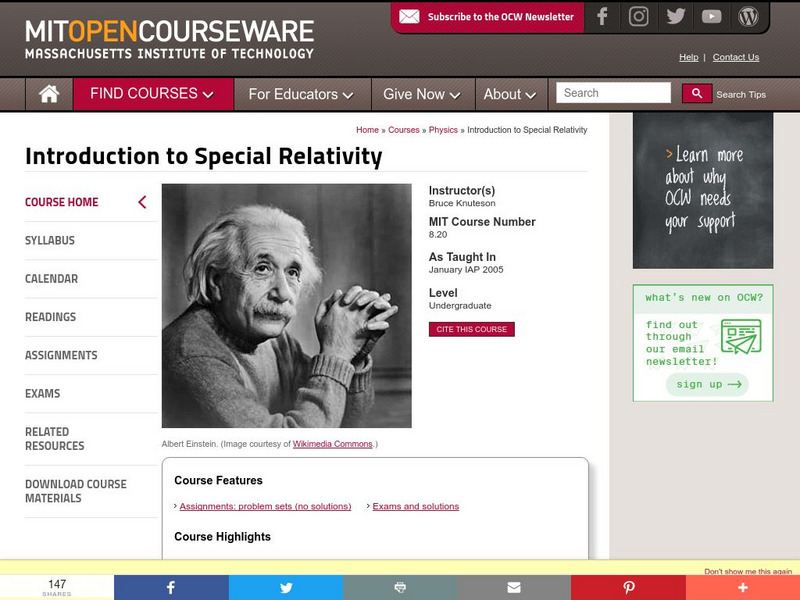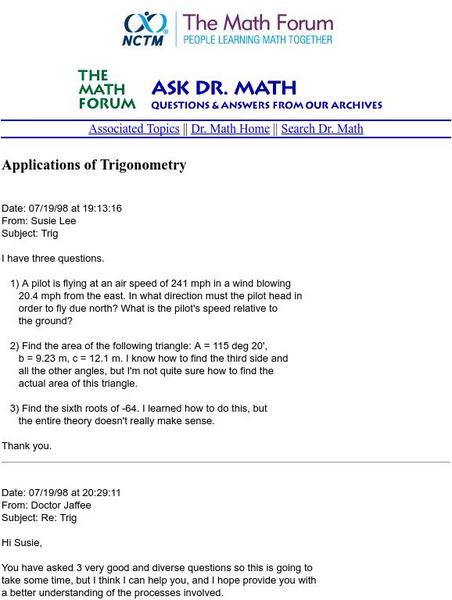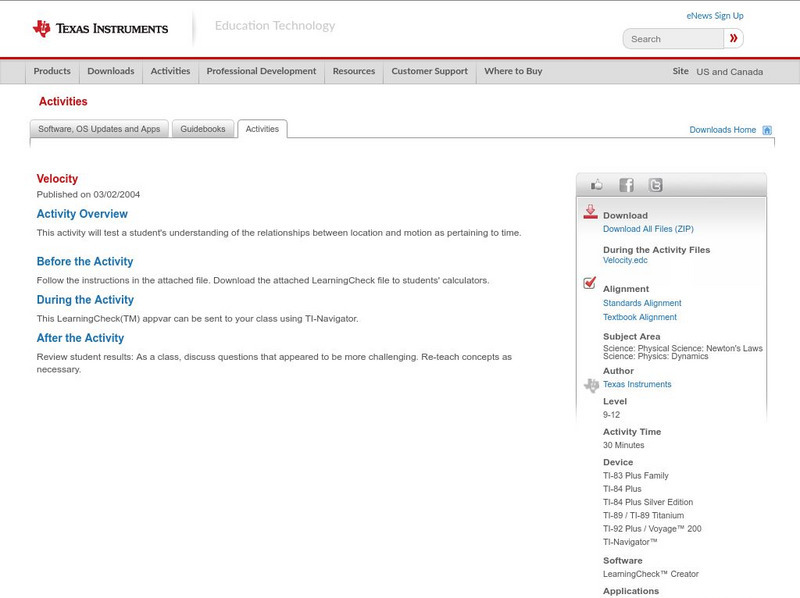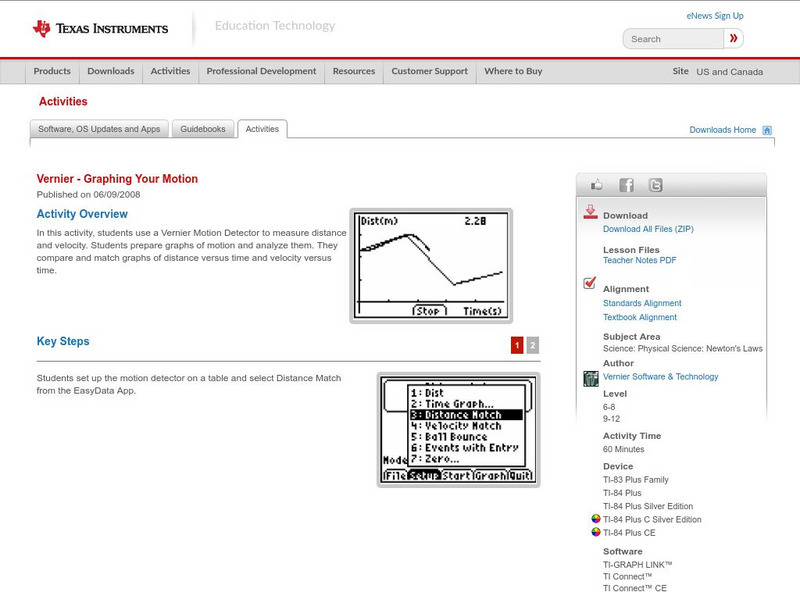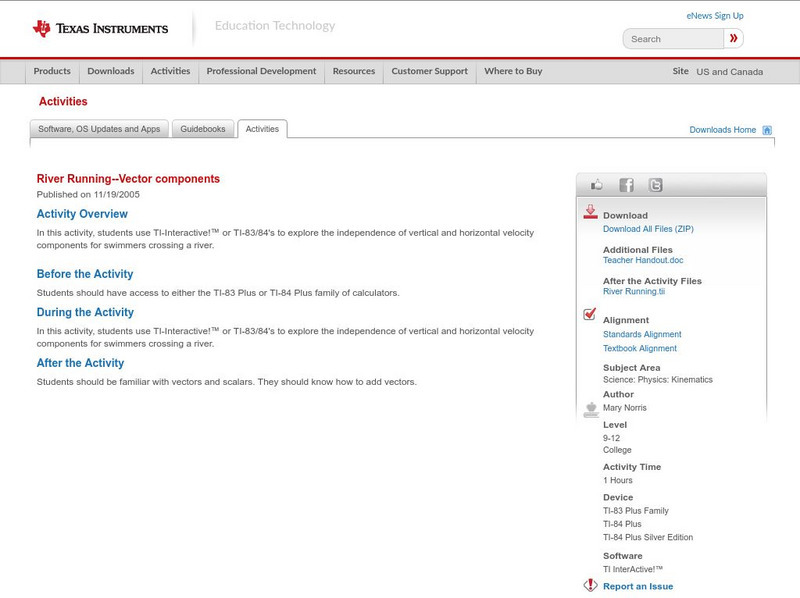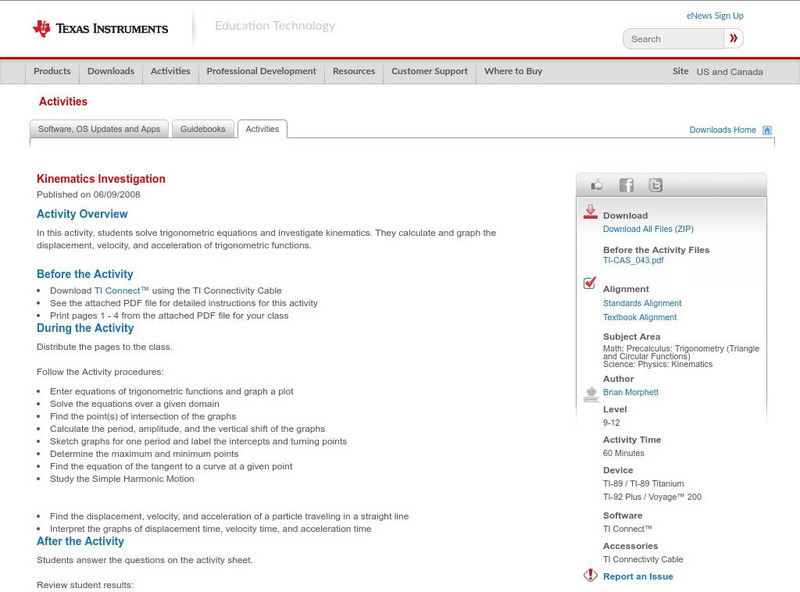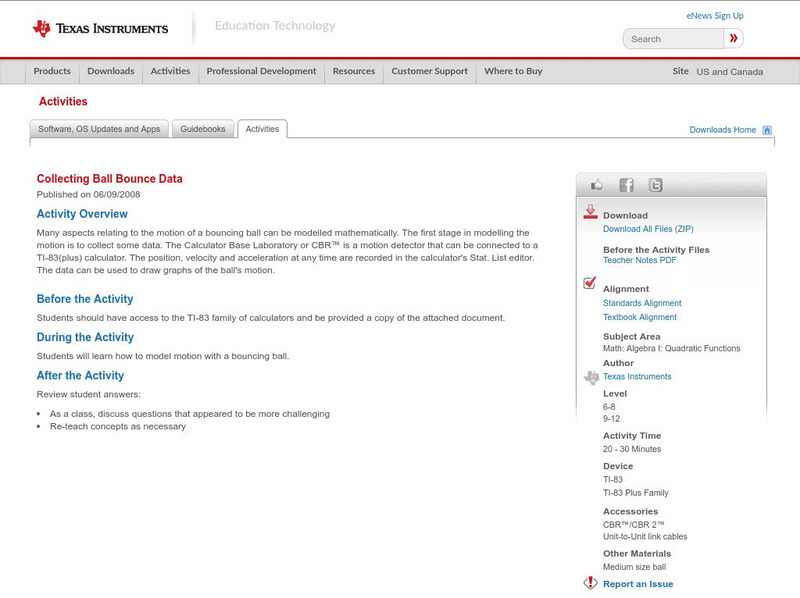CK-12 Foundation
Ck 12: Episd: Physics: Kinematics
[Free Registration/Login may be required to access all resource tools.] An online chapter focused on motion and the shapes it takes. Topics range from speed and velocity to acceleration and free fall. Find detailed visuals, learning...
CK-12 Foundation
Ck 12: Episd: Average Speed, Velocity, and Instantaneous Velocity
[Free Registration/Login may be required to access all resource tools.] Understand how to apply proper calculations to determine speed and velocity and clarify the meaning of instantaneous velocity.
CK-12 Foundation
Ck 12: Impulse
[Free Registration/Login may be required to access all resource tools.] In this online tutorial students will be asked to calculate the impulse applied to a physical system.
CK-12 Foundation
Ck 12: Circular Motion
[Free Registration/Login may be required to access all resource tools.] In the following lesson students will be asked to analyze and describe accelerated motion in two dimensions using equations including circular examples.
CK-12 Foundation
Ck 12: Displacement During Constant Acceleration
[Free Registration/Login may be required to access all resource tools.] Students solve problems involving displacement, distance, velocity, speed, and acceleration, and then explore problems and graphs involving one-dimensional motion.
CK-12 Foundation
Ck 12: Physics: Motion Study Guide
This study guide on motion covers some key vocabulary and terms to describe motion: displacement vs. distance, acceleration, speed vs. velocity, and instantaneous vs. average. It includes graphs showing distance vs. time, velocity vs....
Concord Consortium
Concord Consortium: Stem Resources: How Loud, How High?
What are ways to describe sound? Using the program downloaded called Sound Grapher and the microphone on the computer, students can investigate the frequency, wavelength, amplitude, and velocity of sound waves. Activity includes detailed...
Fourmilab Switzerland
John Walker: C Ship: The Dilation of Time
A good mathematical account of what happens to time as you approach c: the speed of light. Also provides a rather a fascinating video (fly through the Lattice) - don't miss it. Take some time and explore this site.
Curated OER
Zona Land: Components of a Vector
An interactive Java applet where users can rotate a vector about its tail and view the components of that vector. Magnitude of the components is updated on screen as the vector is dragged.
Massachusetts Institute of Technology
Mit: Open Course Ware: Courses: Physics: Introduction to Special Relativity
College-level electrical physics course highlighting Einstein's Special Theory of Relativity. Course introduces the physics of Lorentz contraction, time dilation, the "twin paradox", and E=mc2. Course features suggested readings,...
Georgia State University
Georgia State University: Hyper Physics: Traveling Wave Relationship
Online physics text that illustrates and explains the various characteristics of waves such as amplitude, period, frequency, wavelength, and speed. Includes interactive exercises.
National Council of Teachers of Mathematics
The Math Forum: Ask Dr. Math: Applications of Trigonometry
Dr. Math answers a word problem involving the use of vectors.
Texas Instruments
Texas Instruments: Velocity
This activity will test a student's understanding of the relationships between location and motion as pertaining to time.
Texas Instruments
Texas Instruments: Graphing Your Motion
In this activity, students use a Motion Detector to measure distance and velocity. Students prepare graphs of motion and analyze them. They compare and match graphs of distance versus time and velocity versus time.
Texas Instruments
Texas Instruments: River Running: Vector Components
In this activity, students use TI-Interactive! or TI-83/84's to explore the independence of vertical and horizontal velocity components for swimmers crossing a river.
Texas Instruments
Texas Instruments: Cas Your Girl Friend
In this activity, students find the time a man takes to catch a moving train. They solve the problem with and without using calculus.
Texas Instruments
Texas Instruments: Conserving Energy
In this activity, students will find both the kinetic and potential energies as the cart rolls down the ramp. They will find the sum of the two energies, and show that this value is constant at all times.
Texas Instruments
Texas Instruments: Walk This Way: Definition of Rate
In this activity, students' will use a motion detector to record distance and velocity versus time information for a walker. They find the area under the velocity versus time graph and compare it to the actual distance traveled by the...
Texas Instruments
Texas Instruments: Good Vibrations Activity Modeling Motion
The student will investigate Hooke's law and the position, velocity and acceleration of an object oscillating vertically on a spring.
Texas Instruments
Texas Instruments: Velocity Test: Interpreting Velocity Graphs
In this activity, students' will use a motion detector to record the distance versus time data for the simple motion of a walker. They will calculate velocity from this graph and compare it with the velocity graph generated by the...
Texas Instruments
Texas Instruments: How Far Did You Walk?
In this activity, students will find the distance traveled when the velocity is constant by examining the area under the Velocity-Time graph and applying the formula d = r * t. They will also find the distance traveled for motion when...
Texas Instruments
Texas Instruments: Kinematics Investigation
In this activity, students solve trigonometric equations and investigate kinematics. They calculate and graph the displacement, velocity, and acceleration of trigonometric functions.
Texas Instruments
Texas Instruments: Two Dimensional Particle Motion
In this activity, students explore the motion of a projectile parametrically by adjusting the projectile's initial height, initially velocity, and angle to the horizontal.
Texas Instruments
Texas Instruments: Collecting Ball Bounce Data
Many aspects relating to the motion of a bouncing ball can be modelled mathematically. The first stage in modelling the motion is to collect some data. The Calculator Base Laboratory or CBR is a motion detector that can be connected to a...


